Deadliest Russian attack in months on Ukraine’s cities kills at least 25
Sign up now: Get ST's newsletters delivered to your inbox
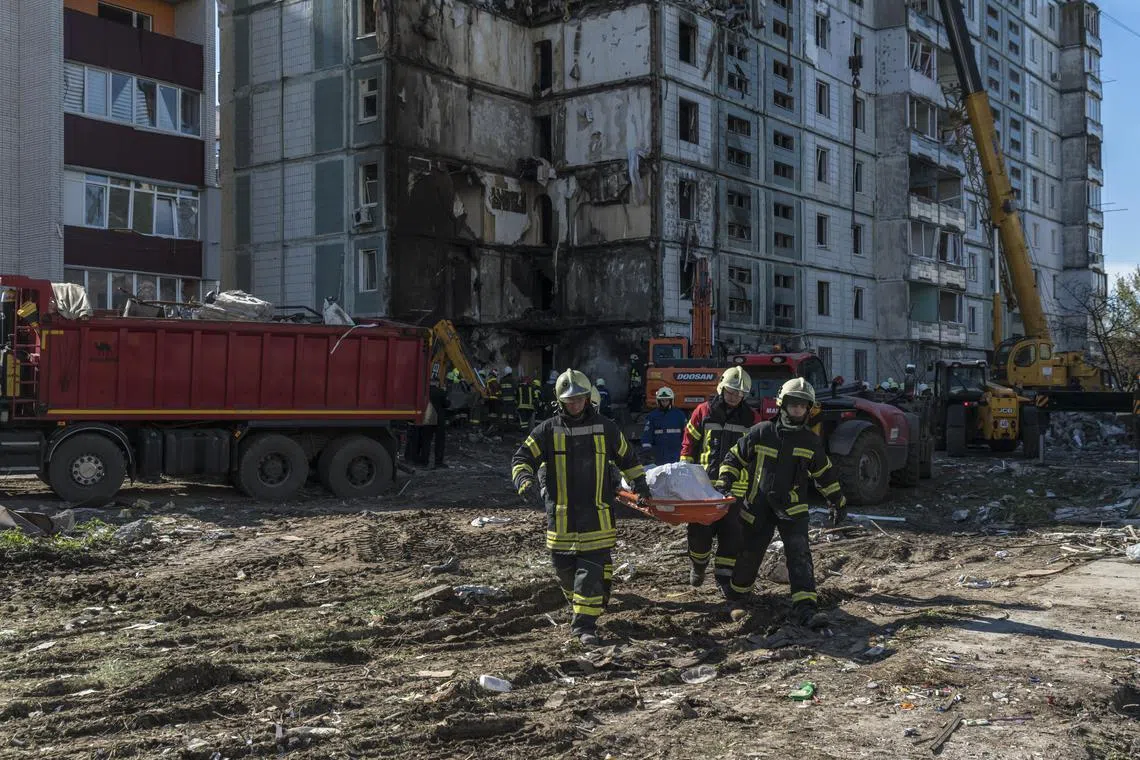
Emergency workers remove the body of a victim from the rubble in Uman, Ukraine, on April 28.
PHOTO: NYTIMES
Follow topic:
UMAN, Ukraine – Mr Dmytro raced to the room where two of his children had been sleeping, after a Russian missile thundered into his apartment building in Uman, Ukraine, before dawn on Friday.
He forced the door open and stared into oblivion.
“There was no room behind the door. Just a cloud of fire and smoke,” he said.
By the end of the day, he and his wife Inna had found no trace of Kyrylo, 17, or Sophia, 11.
Russia on Friday launched its first widespread aerial assault in more than a month against Ukrainian civilian targets, killing at least 25 people, said Ukrainian officials.
It was the deadliest such attack since January.
At least 20 died at that one apartment block in Uman, its front face shorn off by the missile blast.
The attack marked a return to a pattern Russia adopted last year after its invasion failed to defeat Ukraine militarily, of launching large-scale barrages of missiles, rockets and drones at cities and towns far from the battlefields in the east and south.
It is a campaign intended partly to destroy civilian infrastructure.
It also appears aimed at terrorising and demoralising the population, with lethal reminders that no corner of the country is beyond Russia’s reach.
On Friday, Russian bombers over the Caspian Sea fired 23 cruise missiles that struck after 4am local time, and Ukrainian forces shot down 21 of them, Mr Valeriy Zaluzhnyi, commander of the Ukrainian military forces, said in a statement.
The Russian Defence Ministry said in a statement that it had used “high-precision, long-range” missiles against places where Ukrainian reservists had gathered.
It did not specify locations or offer evidence about what was hit. “The goal of the attack has been reached,” it added.
The barrage underscored the importance of Ukraine’s air defences, which have been highly effective but not perfect.
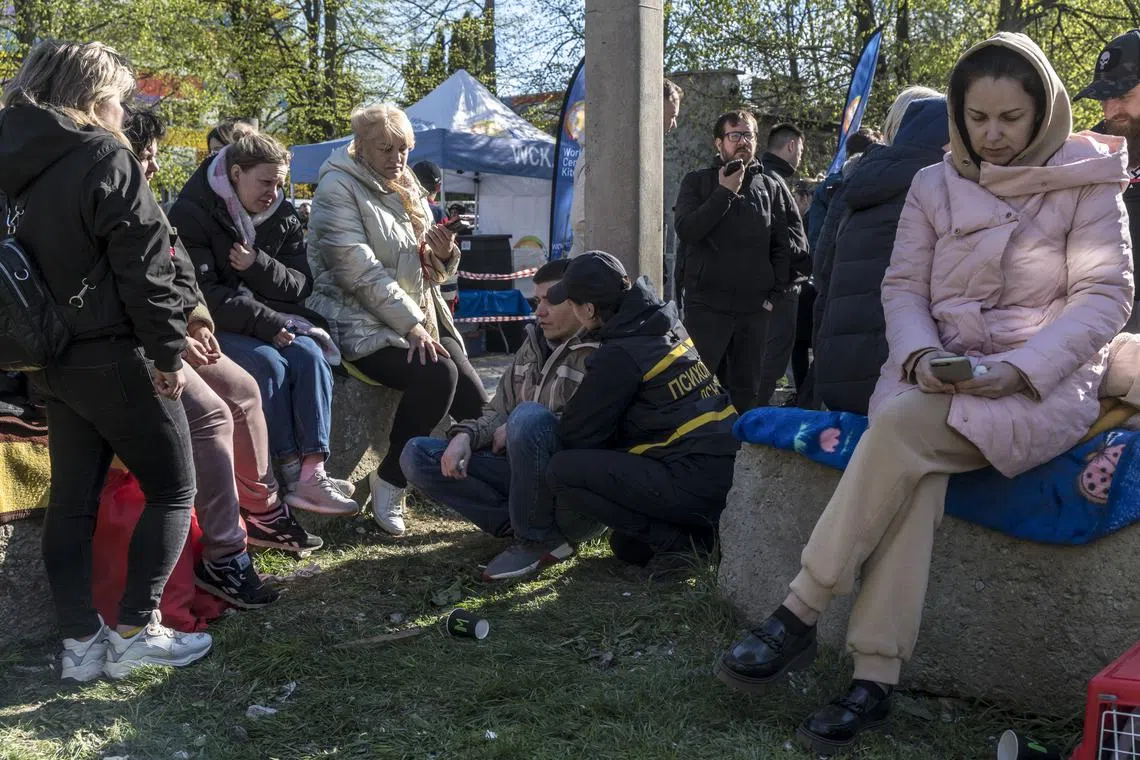
Mr Dmytro, whose two children are missing, speaking with a psychologist from the emergency services department in Uman.
PHOTO: NYTIMES
Even a small number of missiles penetrating them can cause great damage.
In a trove of Pentagon documents related to the war in Ukraine that have leaked online, United States intelligence agencies speculated that without a major influx of Western munitions, Ukraine’s entire air defence network, weakened by repeated Russian barrages, could fracture.
Russia also appears to once again be adjusting tactics when using its own diminished supply of precision missiles to evade detection.
The Ukrainian military’s southern command said that in recent strikes, Moscow’s forces had made multiple changes in missile trajectories and launch locations to complicate the Ukrainians’ ability to detect them.
The attack on Friday killed 23 people in Uman, some 320km from the front lines, and two other people in Dnipro, a young woman and her two-year-old child, officials said.
There were also explosions in Kyiv, the capital, apparently from air defence batteries destroying missiles in flight.
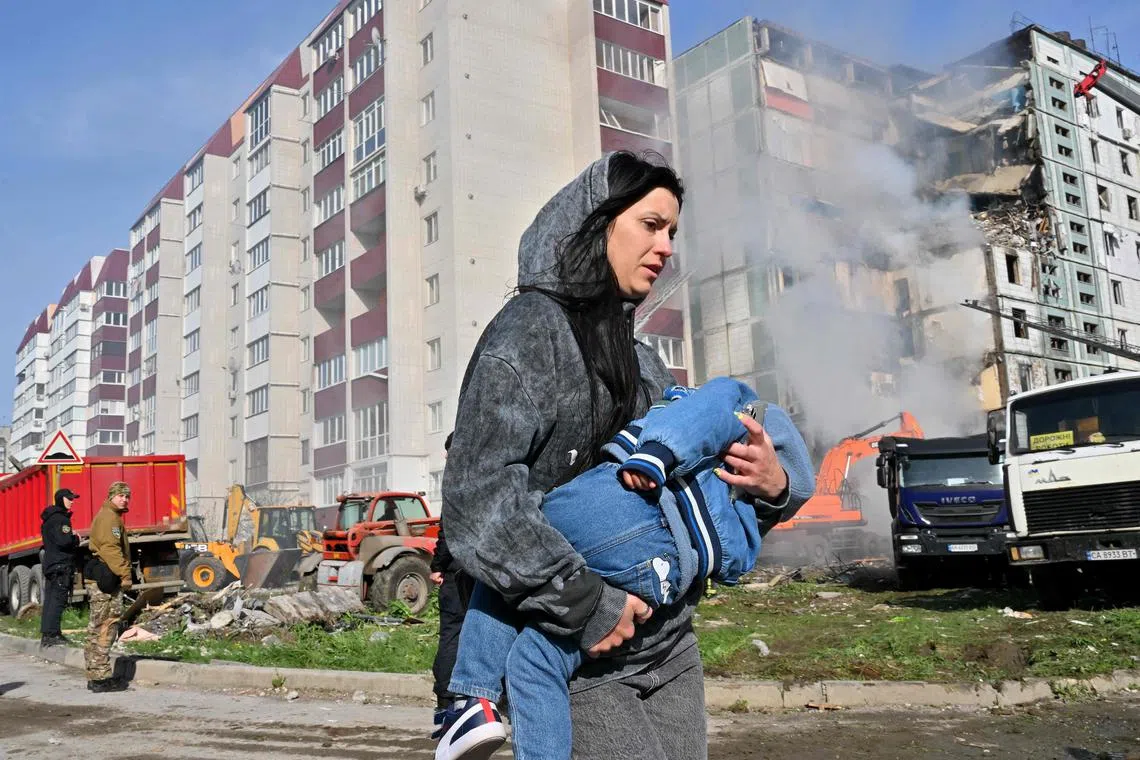
A woman walking past damaged residential buildings as she carries a child in Uman.
PHOTO: AFP
In Uman, Ms Inna and Mr Dmytro, who asked that their surnames not be used for security reasons, and their six-year-old son were unharmed.
But the stricken parents could not quite grasp that their other two children might be gone forever.
Ms Inna stood outside, where charred cars lined the carpark, staring at the wreckage of what had been her home and repeating into the wind that maybe the blast had carried Sophia and Kyrylo away, alive.
“I did not know what to do,” Mr Dmytro said, recounting those inconceivable first moments.
“Do I look for my older children or do I help my wife and the little one out of the house? Since I could not see my older children, I ran out.”

Friday's attack marked a return to a pattern Russia adopted last year: to hit cities and towns away from battlefields.
PHOTO: REUTERS
A psychologist on the scene and their neighbours offered words of solace.
In addition to those killed on Friday, dozens were wounded and an unknown number unaccounted for. Over 100 people were registered as living in the 46 units of the devastated apartment building in Uman, officials said, but they did not know how many had been at home.
As firefighters doused flames rising from the rubble, rescuers uncovered bodies and survivors through the day and into the evening.
A convoy of dump trucks came one after another to haul away debris so that workers could dig their way to the basement, where they hoped to find more people alive.
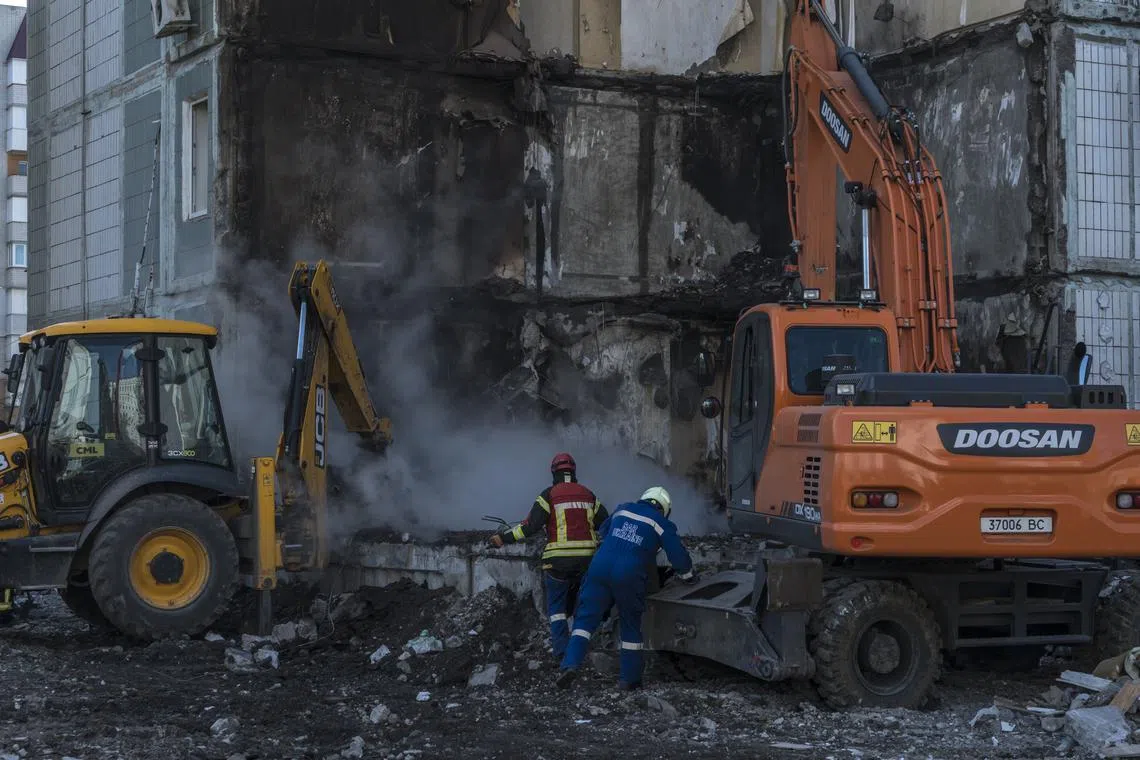
Emergency workers excavating rubble from a high-rise residential building in Uman on Friday.
PHOTO: NYTIMES
Armed with an array of new weapons from its Western backers, Ukraine is expected to launch a major counter-offensive soon to retake territory seized by Russia since it invaded 14 months ago.
A new Kremlin policy says that Ukrainians living in those occupied areas can be removed from their homes and relocated
A decree signed on Thursday by President Vladimir Putin – who contends that Ukraine is a wayward part of Russia, not a real country – states that residents who do not pledge allegiance to Russia are now considered foreigners, their legal residency will expire in July 2024, and they may be deported.
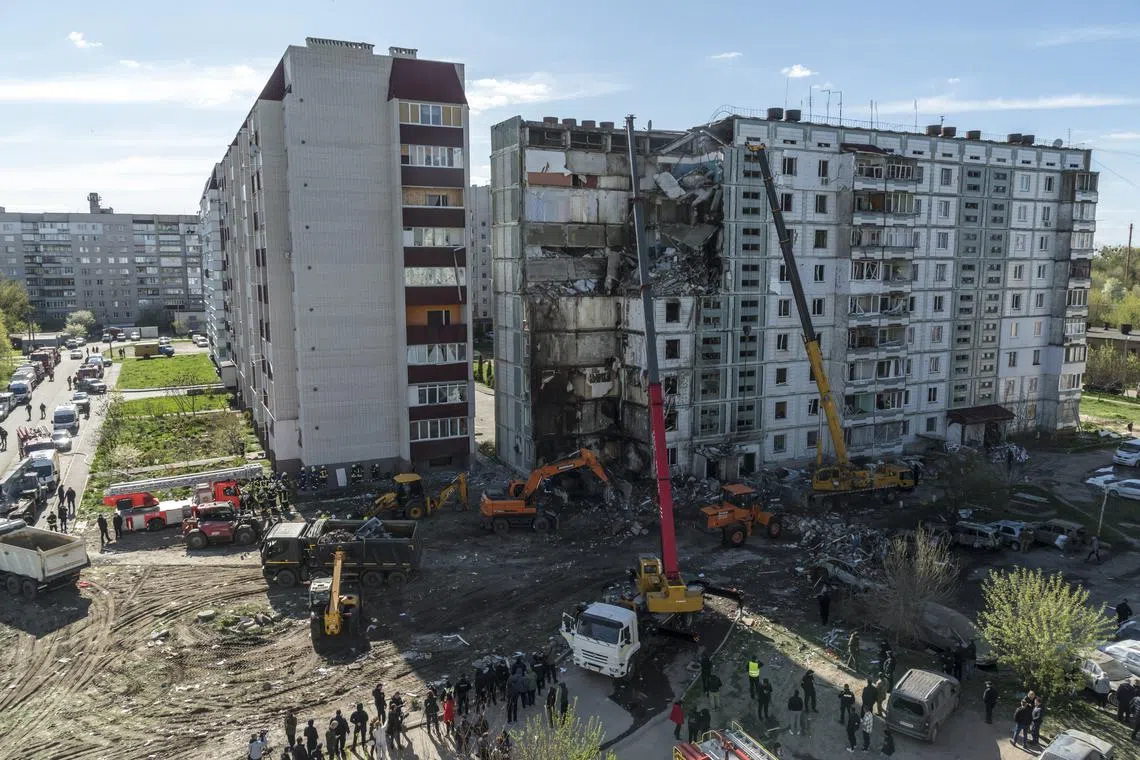
Rescue works under way at the scene of a Russian missile strike on a high-rise residential building in Uman.
PHOTO: NYTIMES
Ukrainian officials condemned both the decree and the missile strikes as evidence of Mr Putin’s disdain for human rights and determination to erase Ukraine.
They called again for still more advanced Western weapons to fend off the attacks.
Ms Bridget Brink, the US Ambassador to Kyiv, wrote on Twitter: “Russia still hasn’t learnt that its brutality only reinforces Ukrainian resolve and deepens our commitment.”
Mr Charles Michel, president of the European Council – the group of European Union heads of government – tweeted that “military, humanitarian and political support will continue as long as needed”. NYTIMES

